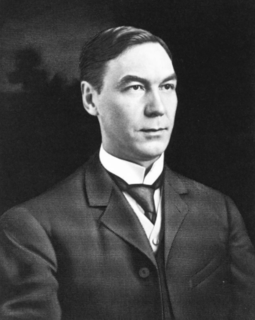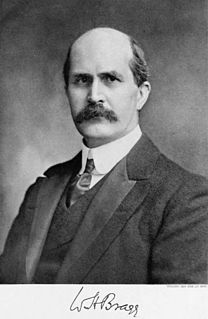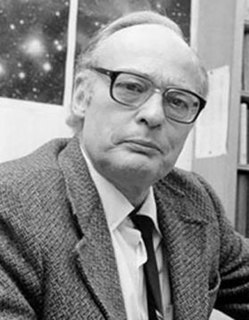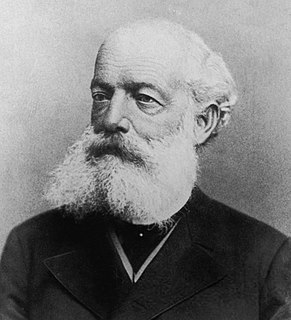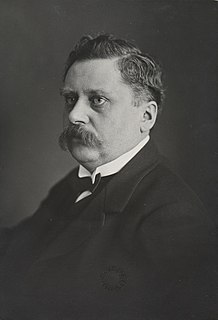A Quote by Jacques Dubochet
Chemistry is the science of atoms. Elaborating on Democritus' idea, chemists learn how atoms stick or don't stick together, thus forming molecules.
Related Quotes
The Universal mind is not only intelligence, but it is substance, and this substance is the attractive force which brings electrons together by the law of attraction so they form atoms; the atoms in turn are brought together by the same law and form molecules; molecules take objective forms and so we find that the law is the creative force behind every manifestation, not only of atoms, but of worlds, of the universe, of everything of which the imagination can form any conception.
The question whether atoms exist or not... belongs rather to metaphysics. In chemistry we have only to decide whether the assumption of atoms is an hypothesis adapted to the explanation of chemical phenomena... whether a further development of the atomic hypothesis promises to advance our knowledge of the mechanism of chemical phenomena... I rather expect that we shall some day find, for what we now call atoms, a mathematico-mechanical explanation, which will render an account of atomic weight, of atomicity, and of numerous other properties of the so-called atoms.
The beauty of a living thing is not the atoms that go into it, but the way those atoms are put together. Information distilled over 4 billion years of biological evolution. Incidentally, all the organisms on the Earth are made essentially of that stuff. An eyedropper full of that liquid could be used to make a caterpillar or a petunia if only we knew how to put the components together.
Chemists are, on the whole, like physicists, only 'less so'.They don't make quite the same wonderful mistakes, and much what they do is an art, related to cooking, instead of a true science. They have their moments, and their sources of legitimate pride. They don't split atoms, as the physicists do. They join them together, and a very praiseworthy activity that is.
I am not prepared to deny or assert any proposition which concerns myself; but certainly this solitary struggle with platitudinous atoms, called men and women by courtesy, leads me to wish for my wife again. How did I ever hit on the only woman in the world who fits my cravings and never sounds hollow anywhere? Social chemistry-the mutual attraction of equivalent human molecules-is a science yet to be created, for the fact is my daily study and only satisfaction in life.


